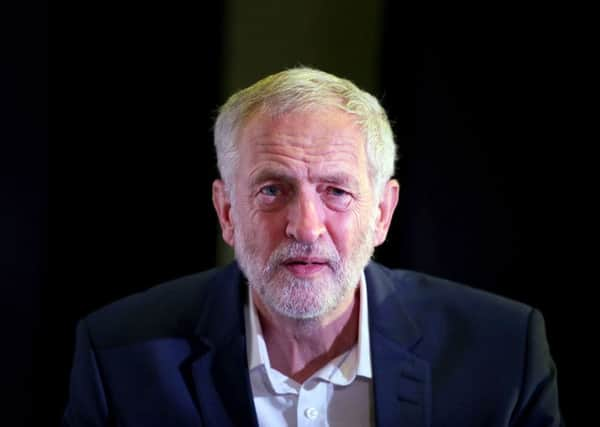Austin Mitchell: Labour's campaign doesn't interest wider public


Labour’s election is premature, achieves nothing, features two unsuitable candidates and leaves the cream of Labour’s leadership crop to stand and watch like the electors locked up in the Eatanswill coach house, though they had the advantage of being kept drunk.
Jeremy Corbyn is a campaigner, not a leader. Yet it will take time to demonstrate his inadequacies to those who elected him and possibly to realise them himself. That can only come from next year’s polls and council election results.
Advertisement
Hide AdAdvertisement
Hide AdInstead of waiting, the issue has been forced too soon by sulky Blairites who feel they should be running the party and rampant Remainers who blame Corbyn for not whipping reluctant Labour supporters into an enthusiasm for they EU they don’t feel. This produces a leadership election whose nomination system allows room for only one alternative – Owen Smith has rocketed from obscurity to grab it pitting the old agitator against the slick salesman fighting to win political enthusiasts not real people.
Result? A campaign which doesn’t interest the wider public because it is being aimed at Labour’s political groupies which makes it a slugging match about who’s leftier than the other in a party which needs to move to the centre ground to win. Each candidate adds 57 new varieties to the longest suicide note in history. Neither indicates what Labour should do after Brexit beyond trying to wish it away. Each highlights the deficiencies of the other. Neither demonstrates any great leadership potential of his own.
Suicide as a political strategy makes it difficult for Labour to do its job as an effective opposition. Yet neither candidate offers any way to end the civil war or change a structure designed for disaster.
Party enthusiasts hate the MPs as betrayers. MPs hate the leader as hopeless. He hates the General Secretary and the party machine. Compounding antagonisms like this is more likely to lead to a split than election victory.
Advertisement
Hide AdAdvertisement
Hide AdYet Smith’s answer is for more moderates to join, even though few are prepared to waste their lives in endless committees and boring fights, while Corbyn wants more socialists, ignoring the danger of permeation they bring and putting Labour out of kilter with the people. Both campaigns are based on an outdated view of politics. No hope now of arousing any starvelings from their slumbers. They’re viewed as scroungers choosing a life of dependency. No sign of revolutionary blood to shed in a conservative country.
No 1945-type surge and no mass working class to be roused when there are fewer manual workers. Instead there’s much less class solidarity and a steady fall in both strong support and votes for the main parties. Yet each candidate wants to bring the mass party back from the dead.
They’re clobbering a bored nation with a smorgasbord of policies: CND, environmentalism feminism, ethnic appeals, gay rights, Euro enthusiasm and an open door to immigration, ignoring the fact that you don’t multiply support by multiplying policies, you divide it.
Basic political rules tell us to give party members influence but not power because they pull to the extremes away from the centre ground on which elections are won. Most people aren’t particularly interested in politics and would rather get on with their lives, their families their entertainment and their sport.
Advertisement
Hide AdAdvertisement
Hide AdThey find politics irrelevant, though most will do their duty at national elections and they can even be roused by the manifest failure of a government, but then they need a few broad policies from a party which offers a better alternative. Not a quarrelling rabble.
In that situation the job of the Opposition is to highlight governmental failures, develop broad and attractive alternatives and stand ready for the Government to fail. Any other approach – disunity, a plethora of policies, purification – damns the Opposition and allows the Government to get away with more than if it faced a strong opposition.
Power comes in three stages. First, appeal to the centre ground on which most electors live. Second, handle power successfully to become a credible government. Then implement the stronger policies you think necessary.
Margaret Thatcher managed to jump all three hurdles. Tony Blair fell at the second. But today’s Labour Party shows no sign of reaching the first. I’ll have to write “neither of the above” on my ballot paper.
• Austin Mitchell is the former Labour MP for Grimsby.